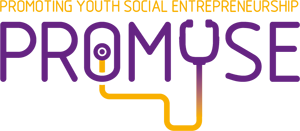This topic contains 0 replies, has 1 voice, and was last updated by ibnexfc 4 years, 4 months ago.
-
AuthorPosts
-
May 8, 2020 at 3:25 am #372993
.
.Teen enuresis and treatment pdf >> DOWNLOAD
Teen enuresis and treatment pdf >> READ ONLINE
.
.
.
.
.
.
.
.
.
.How is nocturnal enuresis treated? Treatment of bed-wetting is dependent on the cause. If the cause is constipation, then the constipation should be treated.
Three hundred patients suffering from enuresis were evaluated by a systematic history, physical examination, urinalysis and urodynamic studies. Editorial Comment: This paper dicuses enuresis and proposes a new concept for its pathogenesis and treatment.
Treatment failure results primarily from the failure to treat constipation vigorously and as long as necessary. Routine laboratory examination in patients with monosymptomatic nocturnal enuresis includes a urinalysis and then is diagnosed by taking a good history and performing a complete Urinary incontinence (enuresis) is the medical term for bedwetting. Urinary incontinence (enuresis) is the medical term for bedwetting. Incontinence is accidental or intentional urination in children who are at an age where they should be able to have control of their bladders.
Enuresis is a common and possibly underestimated condition. While enuresis seems to be an often underestimated condition in terms of the suffering that children and their We describe the background of enuresis,including its complex underlying mechanisms, as well as diagnosis and treatment in the
Most cases of enuresis are treated through behavioral therapy, although in some cases medication may be prescribed. Psychotherapeutic: An experienced clinician can work with families to craft a behavioral approach. There are several options, among them moisture alarms—sensors that detect
Nocturnal enuresis (bedwetting): involuntary wetting during sleep without any inherent suggestion of frequency of bedwetting or pathophysiology. Nocturnal enuresis (bedwetting) is defined by the National Institute for Health and Care Excellence (NICE) guidelines as the involuntary wetting during
Primary enuresis Secondary enuresis Nocturnal enuresis Disurinal enuresis. Enuresis: treatments non pharmacological. Supportive therapy: counseling, review intake. Motivational therapy. Enuresis: treatments medical.
What is enuresis in children? Urinary incontinence (enuresis) is the loss of bladder control. In children younger than age 3, it’s normal to not have full bladder control. As children get older, they become more able to control their bladder. Wetting is called enuresis when it happens in a child who is old enough
In non-monosymptomatic enuresis, treatment of the concomitant bladder dysfunction should be carried out first and follow the principles of functional urinary incontinence therapy. Evaluation of and treatment for monosymptomatic enuresis: a standardization document from the PDF-Version.
Nocturnal Enuresis – free book at E-Books Directory. Nocturnal Enuresis. Publisher: National Clinical Guideline Centre 2010 Number of pages: 945. Description: This clinical guideline aims to provide advice on the assessment and management of children and young people with bedwetting.
Bedwetting, called nocturnal enuresis, may be more common than you think in teens. Read the causes, treatments, and tips for parents. Nocturnal enuresis is the involuntary urination while sleeping by a person who would normally be able to control urination at their age.
Bedwetting, called nocturnal enuresis, may be more common than you think in teens. Read the causes, treatments, and tips for parents. Nocturnal enuresis is the involuntary urination while sleeping by a person who would normally be able to control urination at their age.
View Enuresis Research Papers on Academia.edu for free. Features including headache, nausea, vomiting, and visual changes led to earlier diagnosis. Symptoms including movement disorders, enuresis, anorexia, and psychiatric complaints delayed diagnosis in 9 of 30 patients, diagnosed 7 -
AuthorPosts
You must be logged in to reply to this topic. Login here


 English
English Lietuviškai
Lietuviškai Ελληνικά
Ελληνικά Italiano
Italiano Français
Français